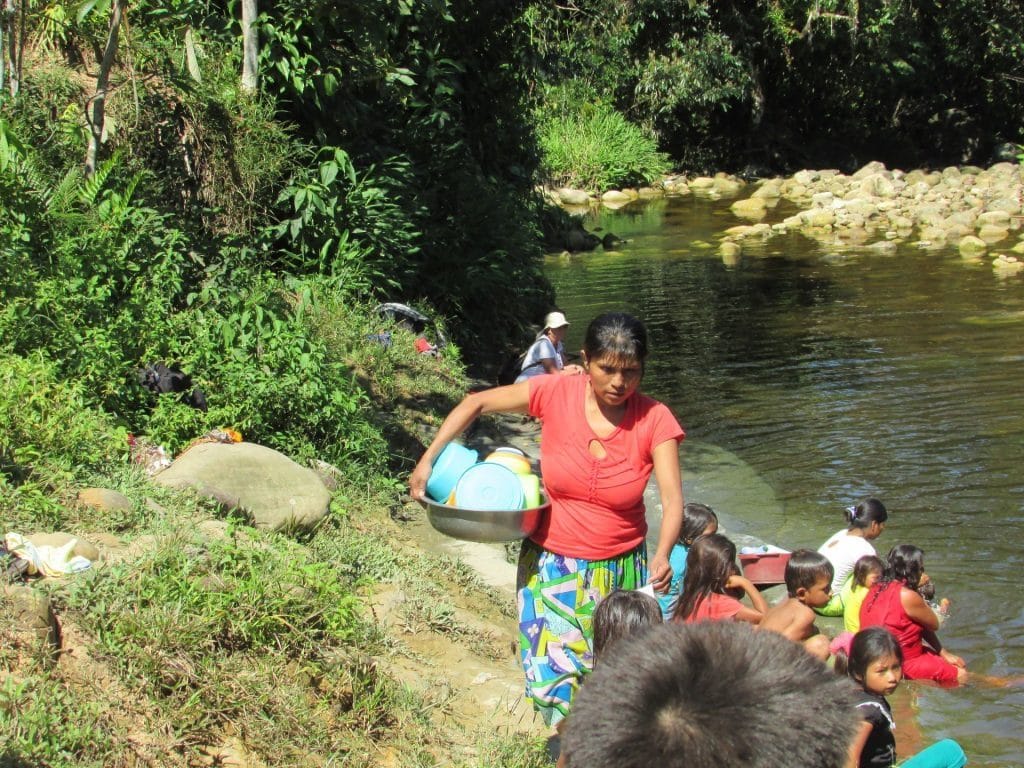In the world of tourism, we talk more and more about responsible tourism, but also homestay, solidarity travel or why not ecotourism. This makes perfect sense for professionals, but is a little further away from the traveler’s concerns when he chooses to stay abroad.
We will try to explain each of the different terms, adding our personal Phima Voyages approach and involvement with the local population.
In this article you will therefore find several sections:
- Responsible tourism, Rural and Sustainable Tourism: With a general definition, the official UNWTO definition and our vision of Phima Voyages, rural tourism and what we do at this level
- Fair and solidarity tourism: The definition of ATES and our personal implication for each point
- Ecotourism: Protecting nature through tourism revenues
- The role of tourism associations in northern Peru
- Their challenges and challenges to participate in the responsible development of tourism
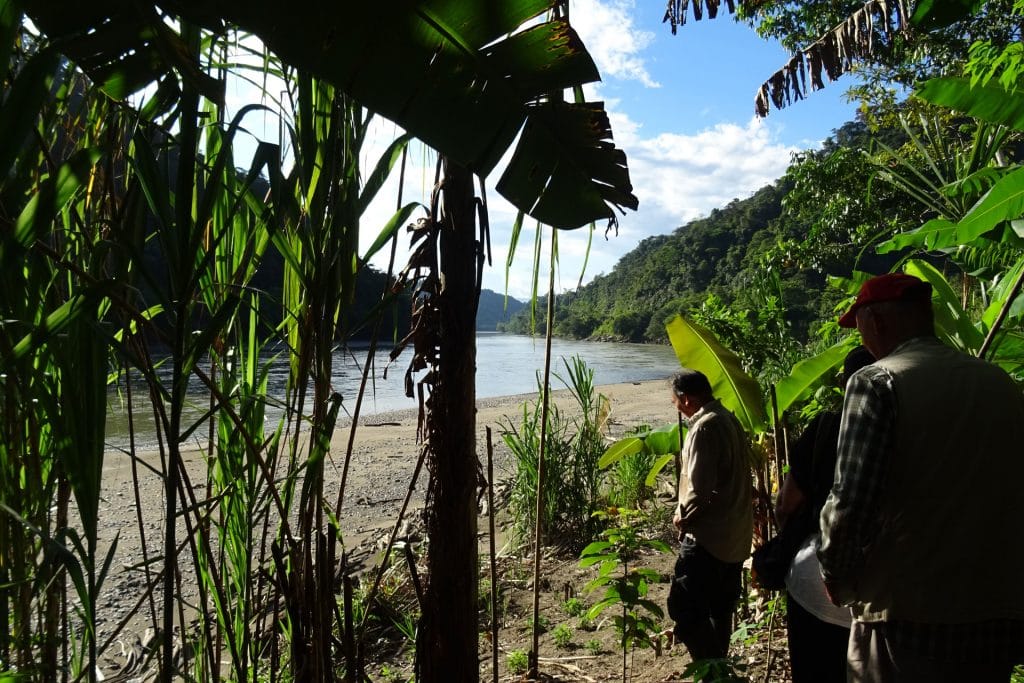
Responsible, rural and sustainable tourism
A general definition of rural tourism
Above all, rural tourism is a form of tourism that tries to avoid mass tourism and all the negative aspects that come from there. In this respect, it is mainly a form of alternative tourism, that is responsible tourism. More and more people are making this choice through a desire to live an unique and authentic experience.
Rural tourism is also often associated with eco-tourism. When we know that more and more people are traveling around the world, creating a significant ecological impact, we understand that this more responsible tourism practice is necessary and successful.
You can also talk about agro tourism, which consists of discovering rural life and all the ancestral knowledge of a territory. Of course, it is not just about learning how to milk a cow. Making the choice of rural tourism means discovering a place through its traditions, its gastronomy and its social realities.
Definition of the OWT, Unesco and the European commission, updated in 2004
I will not quote the full definition of the UNWTO World Tourism Organization (updated in 2004), but the idea is that “sustainable tourism management practices” must “be applicable to all forms of tourism“. Basically, that tourism in general should be responsible.
“The guidelines for sustainable development and sustainable tourism management practices are applicable to all forms of tourism in all types of destinations, including mass tourism and the various tourist segments. The principles of sustainability refer to the environmental, economic and socio-cultural development of tourism. In order to guarantee the long-term sustainability of the latter, we must find the right balance between these three aspects.”
According to the OWT, sustainable tourism must:
- “Make optional use of environmental resources that are a key element in tourism development, maintaining essential ecological processes and helping to conserve natural resources and biodiversity;
- respect the socio-cultural authenticity of host communities, conserve their cultural assets built and alive and their traditional values and contribute to understanding and tolerance;
- ensure long-term sustainable economic activity, providing to all stakeholders with well distributed socio-economic benefits, between stable employment, benefits and social service opportunities for host communities, and contributing to poverty reduction”
Our vision about responsible tourism
For Phima Voyages, this form of tourism is mostly a means of reconnecting local populations with travelers. Quite often, especially in places of great tourist interest, the tourist just passes quickly. He comes to see this museum or that archaeological site, but they do not take their time.
That is why we have chosen to work with local communities. The women’s associations of Huancas, for example, keeps alive a form of ancient craftsmanship, allowing the perpetuation of a tradition and generating additional income. You can even participate in a pottery class. Like this, your journey is not longer just a visit, it becomes an encounter!
Rural tourism = respectful to locals and nature
We also believe that rural tourism should be respectful of both local people and nature. It is therefore essential that Phima Voyages collaborates with voluntary and motivated communities to develop responsible tourism. The objective is to educate the inhabitants about the preservation of their environment so that they in turn transmit this knowledge to the visitors. The community of Cuispes understood that very well, they are in charge of the magnificent site of Yumbilla. Local guides do everything possible to preserve the lush nature and will be happy to share their knowledge of the plants during the visit. And let me tell you that there are lot of plant species !
For us, rural tourism is mostly local tourism. It must be loved and controlled by the inhabitants of the region. It is also an opportunity to meet and share!
Of course, these definitions are not exhaustive, and we are happy to open the debate. All comments are welcome.
What we do in the field
Since our installation in Chachapoyas, we have been actively working with villagers and communities to assist them in their participation in the local tourism development: English classes, meetings around environmental protection and training workshops in catering and hotel.
This year two communities in the Amazonas region (Cuispes and Leymebamba) welcomed Léa, a Master student in Tourism and Development for three months. Lea did a great job that was addressed to all local entrepreneurs. Weekly meetings, good practices and above all, customized simulations with entrepreneurs who wish to welcome guests in their home and those wishing to structure a traditional activity (such as coffee culture) to be able to offer this activity to foreign travelers.
This year two communities in the Amazonas region (Cuispes and Leymebamba) welcomed Léa, a Master student in Tourism and Development for three months. Lea did a great job that was addressed to all local entrepreneurs. Weekly meetings, good practices and above all, customized simulations with entrepreneurs who wish to welcome guests in their home and those wishing to structure a traditional activity (such as coffee culture) to be able to offer this activity to foreign travelers.
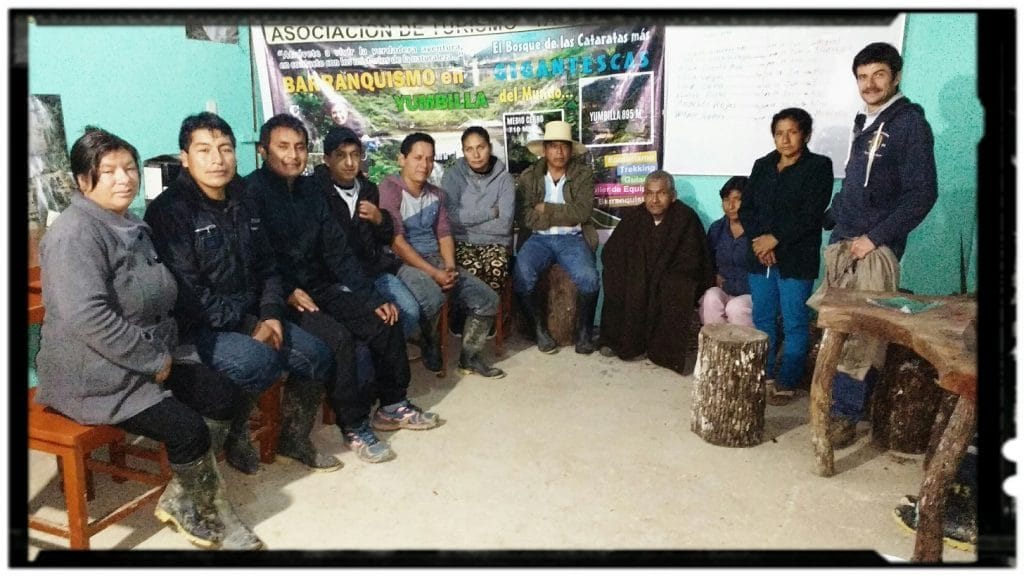
Fair and solidarity tourism
According to the ATES (fair and solidarity tourism association in France)
“Designed by specialists and in close partnership with local stakeholders, the fair and solidarity-based travel guarantees the traveler a rare, human-sized experience made of discoveries and exchanges with the population, which contributes to the balanced development of territories visited.
A fair and solidarity trip is:
1. Traveling in a small group, away from the big tourist infrastructures, in privileged conditions of meeting and exchanges with the populations
At Phima Voyages our trips are all tailor made and fully adapted to your needs.
2. To sleep at the inhabitant’s place or in houses held by the local population (small charming hotels, villages, family rents, camps …)
This is one of the most important points for us, hence the training for our local partners so that they can welcome you to their home.
3. Promote the local economy (guides, meals, transport, crafts …)
- Our drivers are always from the region.
- Jhon, our guide, is hired with an employment contract that gives him job security, vacations and Social Security.
- Where possible we appeal to “local orientadores”, local guides, and to arrieros for horse rentals.
- We include the visits of traditional workshops around weaving, coffee, sculpture to give extra income to our local partners and create special memories for our guests
4. Traveling with respect for people, their culture and their environment
Of course, we prepare the traveler to come to a community, we regularly share best practices on our Facebook page to create mutual understanding. You might also want to read this section.
5. Fund development projects, decided and managed by the communities, by the repayment of part of the price of the trip”
Our trip “Rural Stay in Northern Peru” includes a solidarity part that goes to the tourism associations of Cuispes and Leymebamba for development projects in their communities.
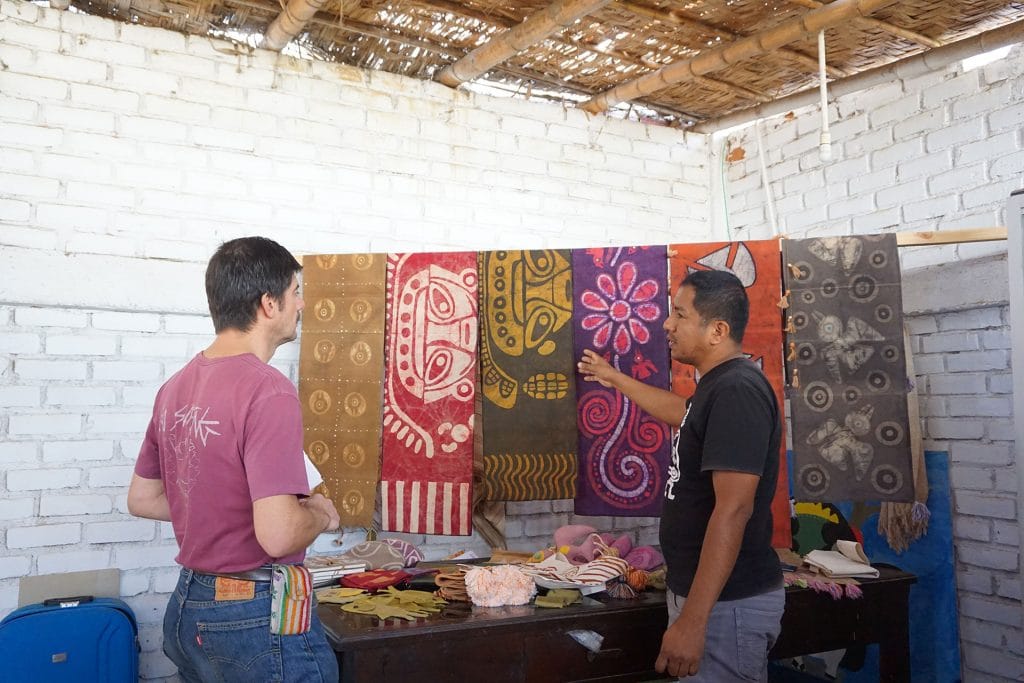
Ecotourism
Ecotourism focuses mainly on financing environmental protection through tourism revenues, so in a way it includes sustainable tourism and perhaps rural tourism. Are you still with me ?
According to Wikipedia “Ecotourism, which is associated with green tourism, is one of the forms of sustainable tourism, more centered on the discovery of nature (ecosystems, but also agrosystems and rural tourism), even urban ecology (gardens Ecological Green Areas, Urban Nature Reserves and other aspects of urban ecology …). “
At Phima Voyages, you will discover Private Conservation Areas such as Perico and Lola in Milpuj, or Private, but managed by communities like Tingana or Santa Elena, but also Regional Parks like Pacaya Samiria dans the Amazon jungle. Whilst staying at each location, you support local officials with your visit, the promotion you make after your visit and the purchase of local souvenirs that you buy there.
At the same time, it is linked to rural tourism, because these small structures often also offer accommodation, so you can stay at a local’s house.
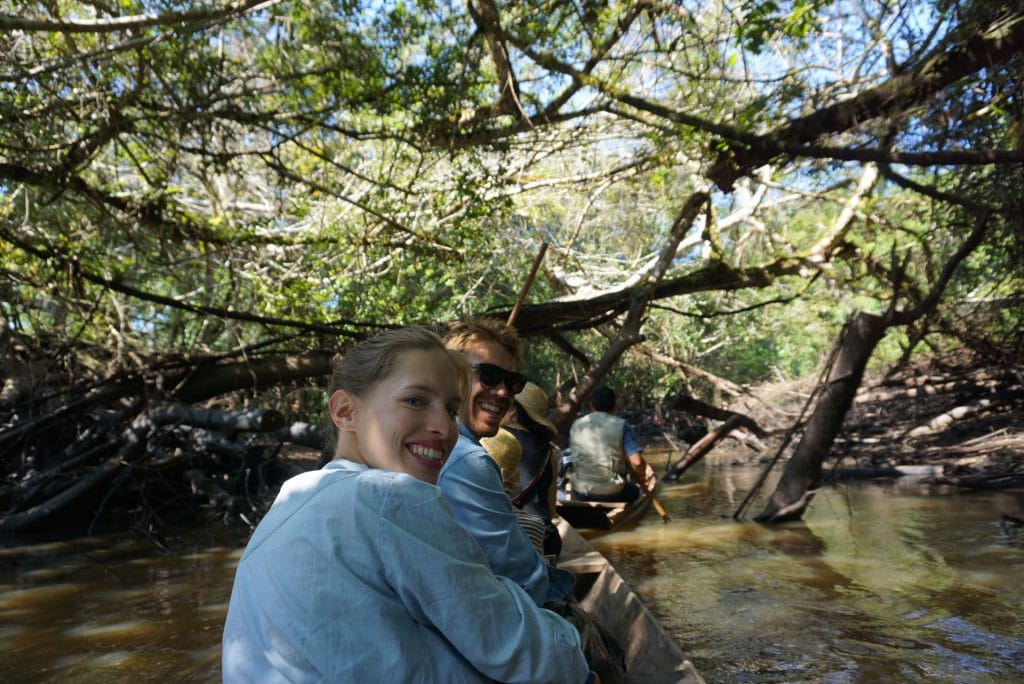
The role of local tourism associations for responsible tourism
The communities have learned how to organize themselves into tourism associations. This involves an administrative procedure to register at the notary and have statutes. It is very important that an association is duly constituted. This is the only way that they can claim state subsidies from various governmental organizations, such as Procompite.
On the other hand, it is a complex and difficult process for the associations’ leaders. The Amazonas region is very large. And it is in Chachapoyas, the capital of the Amazonas region, that all the papers are made. Knowing that the Peruvian administration is very demanding, it is rather the journey of a fighter that just started.
How does it work ?
Once the partnership is formed, villagers must establish the services they wish to offer to travellers. So, there are municipalities that offer orientation with an “orientador local” to their main site (an archaeological or natural site) and charge an entrance fee. Others offer horse rental, catering services or hotels.
A recurring problem in the villages is the fact that everyone wants to participate in activities and make a supplementary income. We must bear in mind that communities cannot live only from the welcome of travellers. Therefore, the various activities such as guide or hiring of horses are attributed to villagers. This in turn allows an equitable distribution of resources, but also allows them to continue working in their field and take care of their animals.
In the region of Amazonas, therefore, there is rural tourism based on the community, but not just that. You will also find private initiatives or families. They seek to protect an ecosystem or share the beauty of their region still far from everything.
What is your money for ?
The income obtained by the local association is used to:
- Repair the access roads to the archaeological or natural site
- Facilitate access, for example building bridges
- Pay the villagers who care about the maintenance of the road. Can you imagine how long it takes to clear the way to Gocta? Among other things, it is necessary to cut the branches that grow along the way, keep flooded sections of the road, bring stones, etc.
- Reforestation of plots that have been used for agriculture. They will be protected by being located in the territory of the association
- Build a reception house
- Pay the person who welcomes you, gives you information and your ticket
- Printed advertising to attend national trade show
- and this does not represent all expenses!
Your payments to the guide or the person who rents the horses or your expenses in restaurants and accommodation, go directly to your host.
Challenges of responsible tourism in homestays and restaurants
Sustainable and rural responsible tourism requires much preparation and workshops to better understand the needs of the Western traveler.
Challenge of maintaining the culture
1) Apart from any attempt of definition, we wish to draw your attention to the fact that the people who welcome you make great efforts to be at a good level. The fact that you are staying at home, sharing a moment with them, fills them with pride. It also gives them a reason to maintain their traditions, which unfortunately have been lost with the younger generation who leaves to study in the big city.
Age Challenge
2) Most people involved in homestays and restaurants are between 35 and 50 years. They have lived all their lives in their area, working their land and are hoping to find additional income in tourism. On the contrary, they did not learn foreign languages and their contact with foreigners was relatively scarce. But they are the first ones who want to learn how to communicate.
Challenge of remoteness
3) The layout of the room for your homestay is not evident. When you live 3 hours away from the nearest city, you depend on the companionship and family network to install the bathroom, the hot water, and other “western amenities”. Unfortunately, this is sometimes synonymous with poor installation. I do not say anything new, but very often, the locals still shower with cold water and of course, there is no heating in the houses, even at 3 000 m. To really enter the category “Sustainable Tourism”, we should also take into account water needs and sewage installation, but this is usually not the case.
Challenge of adaptation to western food habits
4) The food in the Andes is very different from the one we know. For a Peruvian, every meal should have rice and potatoes, vegetables are more an accessory or they are absent. And the salads consist of a couple of onions and tomatoes. Of course, the villagers who welcome you were trained to diversify the dishes, but the conditions of remoteness mean that they cannot offer you other ingredients but only those already mentioned above.
Challenge of new technologies
5) Booking your room probably cannot be done through Internet. Or maybe you are going to send an email, but no one answers. Why? Because the connection is bad these days, because there is no connection at all or because there is a power outage? These are some of the reasons why they cannot respond you right away. And this is not necessarily being the fault of your future host.


